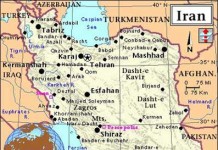Context
By Abdullah B. Khurram
Many analysts from Pakistan demonstrate their resentment towards the United States by cultivating a public opinion in favor of a “Pivot to Asia”, i.e., shift of strategic focus from the United States to China. Whether this external pivot is good or bad for Pakistan is a matter of a separate discussion, but the focus of this article is to demonstrate a need for an internal pivot, i.e., a need for change in the way foreign policy is approached in Islamabad.
Now the question arises, what constitutes an internal pivot? And, why is there a need for it? To answer these questions, we first need to analyze the narratives that currently form the basis of Pakistan’s foreign policy and public opinion.
Analysis
Firstly, Pakistan’s foreign policy tends to be somewhat influenced by a Cold-War era ‘either/or’ narrative, i.e., choosing between either country A or country B. Foreign policy today is rather governed by creating interest hierarchies; two countries can cooperate, yet disagree with each other at the same time. This requires creating levels of cooperation and levels of disagreement, which should be reviewed and altered with time and national interest needs. This problem might be slowly diminishing in the bureaucratic circles of Islamabad, but it remains prevalent in how the public and media perceive foreign policy.
This has resulted in a far-from-balanced thought process in which the benefits of trade with China are overestimated, despite the obvious economic disadvantages for Pakistan. As a result of such an approach, Pakistan has transformed from a ‘Strong Ally’ to a ‘Frenemy’ of the US. And, this has proven to be quite advantageous for the Chinese. China will benefit greatly from acquiring the strategic Gwadar port, and other mining rights in other parts of the country, without paying the premium prices.
Secondly, foreign policy is not a zero-sum game. India’s gain is not necessarily Pakistan’s loss and Pakistan’s gain is not automatically a loss for India. There can be situations which are completely win-win, or circumstance that are entirely lose-lose. There can also be scenarios where one country benefits more than the other. Consider the recent proposal by the Russian Foreign Minister, Sergey Lavrov, demanding Syria to handover its chemical weapons to the international community.
The agreement appears to be a greater win for Russia who came out looking like a savior and protector of international norms, and opposed to a military solution. However, it is also a win for the United States, which was able to get the Russians to act as a guarantor for Syria. The agreement with Russia also helped US avoid military strikes against Syria in the face of increasingly war weary allies and strong public and Congressional resistance.
Third point to consider is that economics supersedes ideologies. Many in Pakistan are proud of having good relations with their fellow Muslim nations but fail to see what actually strengthen ties is economics. The trade between India and Saudi Arabia alone is greater than the size of Pakistan’s trade with the entire Gulf region.
Majority of the states Pakistan has friendly relations with conduct more trade with India than Pakistan. Understandably, some of this is simply due to the larger size of India. At the same time, it is not to suggest that these countries will also politically support India over Pakistan. However, it does imply that trade is an important factor in establishing ties.
Economic factors are also at the center of US-China ties. No matter how much the ties improve or deteriorate at the political level, the economic stakes continue to have a calming influence on the entirety of the bilateral relation between the two. Similarly, if the economic dimension of the US-Pakistan ties were more developed, it would have a stabilizing impact.
Giving ideologies more preference over economics has not been beneficial for Pakistan. To quote one example, Iranian authorities killed six Pakistanis less than 2 months after the Salala incident in which the NATO (mistakenly) killed 24 Pakistani soldiers. While Pakistan rightly took a strong stance on the Salala incident, but it failed to even bring the Iranian killings to the mainstream media. In a similar manner, Pakistan has also never raised the issue of unfair treatment of its labor force with Saudi Arabia and other Gulf countries. Apparently, mistakes made by Muslim states are treated differently than those made by non-Muslim ones. Such posturing has obviously damaged Pakistan’s ties with western nations.
Concluding the argument, foreign policy can neither be viewed in an ‘either/or’ perspective, nor is it a zero-sum game. Bilateral relations that thrive on the basis of economics are much more stable than those based simply on short-term political considerations.
Pakistan needs to diversify its geo-strategic possibilities and has the ability to improve relations with all three, US, China and Russia at the same time. For a country with a strategic location on the map, external pivot might be an option, but an internal pivot is a necessity.
 Abdullah B. Khurram is a Research Associate at the Middle East Institute, Washington D.C.
Abdullah B. Khurram is a Research Associate at the Middle East Institute, Washington D.C.



